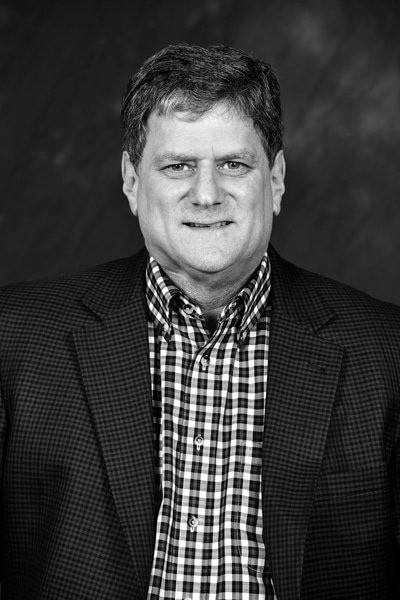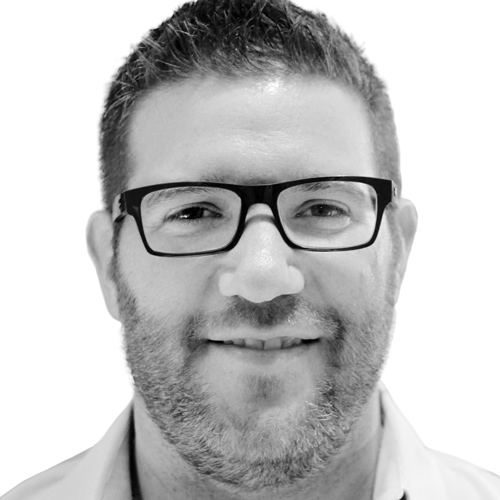
In the early 1980s, Landry’s emerged as two seafood restaurants in Texas but escalated to more than five hundred dining, hospitality, entertainment, and gaming locations over the next three decades. That high-growth trajectory shows no signs of slowing down thanks in part to Steve Scheinthal, executive vice president and general counsel.
Scheinthal oversees the acquisitions and real estate behind Landry’s iconic assets—a portfolio that boasts numerous renowned chains including Bubba Gump Shrimp Co., Rainforest Cafe, and Golden Nugget Hotel and Casino. Based in Houston, the Landry’s network engages customers across the United States and around the globe, with destinations in the world’s largest cities such as Las Vegas, New York, Tokyo, London, Mexico City, and more.
Tilman Fertitta—chairman, president, and CEO—first gained controlling interests in the original Landry’s Seafood Restaurant and Willie G’s Seafood & Steaks in 1986, forming the group that would eventually expand into more than forty unique brands and employ more than sixty thousand people. “Fertitta is a visionary, and he understands change,” Scheinthal says. “That’s been one of our secrets to success. He is a student of the game. He’s constantly putting money back into the restaurants, and he understands trends without overdoing it.”
Scheinthal has been at the center of the action since his arrival in 1992. Landry’s went public the following year at a value of about $30 million. Yet, it had transformed into roughly a $1.7 billion empire a year after Fertitta took the company private again in 2010.
To this day, the legal leader’s team comprises eight in-house lawyers and another four paralegals focused on continuing Landry’s external and organic growth. And from operating hit restaurants such as Mastro’s to opening new establishments such as the Atlantic City nightclub Haven, there’s a lot on their plates.
“The organic growth is pretty routine,” Scheinthal explains. “Take our Saltgrass Steak House concept, for example. We know what the business model is. We know exactly the demographics that we want. We know the footprint. There’s no surprise from an architectural standpoint or a cost standpoint. But when you grow outside of the core business, it becomes more stressful to the organization because it’s new. So for instance, when we build a new hotel, it’s a bigger job because more business decisions need to be made for both development and integration. And it’s what you do after you acquire the business—where you can improve upon the performance—that is what’s important.”
Looking back, Scheinthal knew he wanted to be a lawyer even as a kid growing up in Miami. “I knew that was the career path I wanted to go on, and it was never a question in my mind,” he says. “Everything I did was geared toward being a lawyer.”
He enjoyed the debate team and earned a bachelor’s degree in economics at the University of Florida in 1981. He then earned a juris doctor degree at the University of Houston Law Center in 1984. He went in-house at Stumpf & Falgout in Houston and became a partner in the law firm before joining Landry’s as vice president and general counsel. Scheinthal says his passion for the law continues to fuel the pride he takes in his work today.
The brands are massive and diverse. Landry’s not only encompasses restaurants, but also attractions such as casinos, resorts, aquariums, and boardwalks. More than anything else, Scheinthal says his team strives to ensure that there are no surprises. That also means forming a business savvy legal team. “We do training in terms of what is good business practice,” Scheinthal says. “We make sure everyone knows how to read an income statement or balance sheet.”
While growing the business within several industries that are constantly changing is a hefty challenge, the legal leader keeps pace by keeping the team adaptable. He continues to take a proactive stance on litigation that taps his legal team’s deep well of knowledge, which also results in provisions that prepare the company in advance of any future issues.
“The restaurant industry is fast-paced, and a lot of businesses have gone under. Yet, you still see restaurants that have been around for a long time and are still in business,” Scheinthal says. “One of the differences is that you have to change with the times. If you have a good location, you put money back into your facility, and you create a more modern look and menu, then you can survive a long time in this business.”
To spearhead Landry’s new growth and implement regulatory changes on a global scale requires clear and quick communication, according to Scheinthal.
“Legal touches everything that the company does,” he says. “And part of our business is knowing what is going on in the world. We get legal updates from a lot of services and outside counsel. We’re aware if we need to disseminate something to the whole company or change policies or procedures.”
For example, Scheinthal says his team knew within thirty minutes of a federal judge granting an injunction stopping the enforcement of an overtime pay policy under President Barack Obama.
That’s why everyone on his team must be on the same page, he adds, especially regarding leases and acquisitions. The communication goes both ways—he says it’s essential that he remains accessible to the lawyers. In line with continuous improvement, he empowers team members each year to own a side project that they believe will make the company better. That way, they improve processes and continue to innovate to propel the company forward.
The workforce of dining, hospitality, gaming, and entertainment industries is constantly in flux, which requires the legal team to develop strategies for continuously communicating compliance issues. To help employees understand the laws, Scheinthal and his team are in the process of creating two-minute videos loosely based on the Schoolhouse Rock! television series. The aim is to get the legal points across in an engaging way that will help people remember and ultimately help them manage legal risk across the company.
“You can’t be complacent and be successful,” Scheinthal says. “Everyone needs to give 110 percent every day. A company that stops growing, starts dying.”
Photo: Courtesy of Landry’s

